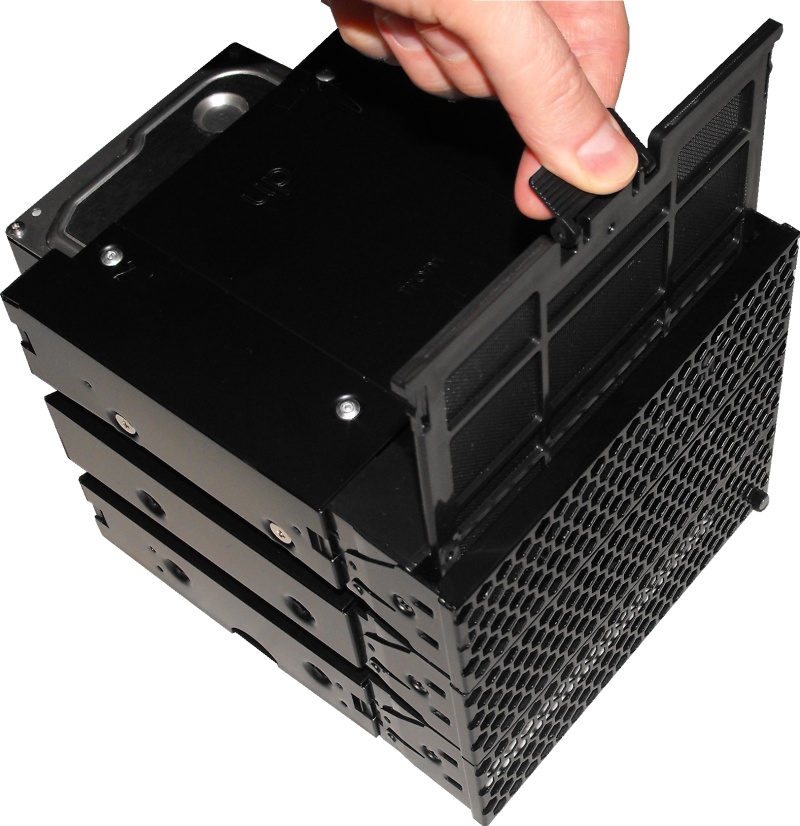Study: A Look At Hard Drive Reliability In Russia
Storelab, a Russian player in data recovery, recently released a long-term study comparing hard drives from a number of different vendors. The controversial report offers interesting data and provides a snapshot of HDD reliability and defect reasons.
Results And Conclusions
Conclusions
Hitachi manufacturers the safest and most reliable hard drives, according to the Storelab study. Of the more than 200 Hitachi hard drives received, not a single one had failed due to manufacturing or design errors. All failures were due to physical impacts caused by the users. Adding the highest average lifespans and the best relationship between failures and market share, Hitachi can be regarded as the winner here. But don't take that as a blanket to cover the whole storage market. It's only the case in this study, which we've already said several times is extremely limited. With that said, research data covering the hard drive market is sparse, which is why this study remains interesting. The study is limited to a specific market segment in Eastern Europe, and only includes drives that were analyzed at Storelab. In it, we have user-triggered failures, as well as design failures.
What Does the Study Mean for the Average Consumer?
Our recommendations focus mainly on avoiding issues due to mechanical damage and high temperatures. If you have a hard drive from one of the manufacturers in this article installed in your computer, perhaps you should take a look at the results and consider whether you need to be more cautious and modify your installation. Using anti-vibration parts (like rubber grommets) when mounting the hard drive, monitoring its temperatures, using adequate cooling, and handling it carefully can make a big difference in reliability and durability. If you know the weaknesses of the manufacturers, you also know what preventative measures you can leverage to keep your own storage safe.
Source and Graphics: Storelab.ru
Get Tom's Hardware's best news and in-depth reviews, straight to your inbox.

Igor Wallossek wrote a wide variety of hardware articles for Tom's Hardware, with a strong focus on technical analysis and in-depth reviews. His contributions have spanned a broad spectrum of PC components, including GPUs, CPUs, workstations, and PC builds. His insightful articles provide readers with detailed knowledge to make informed decisions in the ever-evolving tech landscape
-
cmcghee358 Why post this study if, at every opportunity, you tell us that the data is so limited we aren't to use it as guidance on the quality of the listed drives?Reply
Seems a waste of time. -
mitch074 @cmcghee358: because if they didn't put it at least once per page, polemics could be started by any website linking to one page without it said "THG says Seagate drives are crap!".Reply
Which is true, but only according to a limited, but still relevant (and one of the few available) study.
But, it correlates pretty well to what I experienced: the only failed Hitachi drives I got (and I got a bunch of them) were due to:
- manufacturing fault (and RMA worked well and fast) creating faulty sectors,
- old age (10 years) creating faulty sectors.
Never once, in the two dozen Hitachi (and IBM) drives I had to manage, was a failure related to hardware fault - even dropping a (not running) 2001 drive from one meter height on solid concrete failed to damage it.
I tried Maxtor, Toshiba, and WD drives, and most of these eventually developed unrecoverable hardware faults leading to massive data losses; Hitachi drives caused, at worst, a few files to be lost due to irrecoverable sectors (many times, I got SMART warnings before the data became impossible to rebuild).
I got some Samsung drives recently; they're cheap, and they added shock resistance capabilities in the 2.5" versions, I'll see if they do better than the Hitachi ones (I do backups on Hitachi drives still). If this report is any indication, Samsung notebook drives in RAID 1 array for a desktop machine should allow for reliable operation - the one I have carried around for 2 years in my fanny pack seems sturdy enough, too. -
jj463rd Oddly enough I had to get rid of some old relics (I.B.M. XT's) from the mid 1980's last year.All 5 of them had hard drives which still worked and the machines were still fully functional.Sad I would have liked to have kept them but there was too much clutter in my house.Reply -
jsowoc I'm not sure if my comment is valid, but because Seagate has a lot of market share, its drives are considered "reliable" by many. If I paid a premium for the drive, it's because I have (had?) valuable data on it, and am willing to pay for data recovery.Reply
Could this be part of the reason why Seagate has more than its fair share of drives sent in? -
obrut I have replaced all my Seagate drives with WDs during the last year. My personal study for the last 20 years show that throughout this period only the WD drives show long enough lifespan and reliability. Recently (last 2-3 years) Seagate took quality out of the equation. Currently they are only interested in market share and not the fair name their own brand.Reply
Again, this is personal study - for example I have used only one Hitachi drive during this period, so I can't make statistics on the base of one. -
liquidsnake718 Well I live in the Philippines and im not happy to say that almost 2 years ago I bought a WD Passport and it died on me after 3 months. WD or the retailor replaced it for me via the local distributor. However I lost all of my data that was backed up because prior to that my significantly older Seagate serial IDE 80gb with THAT very same data died on me!Reply
Yeah WD gave me a slightly upgraded HD with 40 more GB but all that info and files that were lost was irreplacable. The problem, was a faulty pin, or the reader that looks like a raptors nail! The device would just click and click and my HDD wouldnt read. -
I'm not sure why but I don't like Seagate too :) Most of my hard drives are Hitachi and I've got 2 failures - one after a power surge and another which was some bad sectors, but the drive was 60GB and it was around 3 years old. I have one Seagate drive and it works fine, I've been using it for around 3 years now on a storage server.Reply
I know a lot of people who had problems with that particular "CC Fly", maybe that is why I don't like Seagate. Nowadays I'm turning to WD, I really want to see how are they doing.
Btw I have 3-4 40GB Maxtors that are still very much alive and working for about 9 years now :) -
dragonsqrrl I remember reading about some problems with the Seagate 7200.11 series, along with a lot of bad ratings on Newegg.Reply -
Azriel4444 The Seagate 7200.11 series was horrible. I avoid them no matter how cheap they are on sale. 7200.12 are way more dependable.Reply
